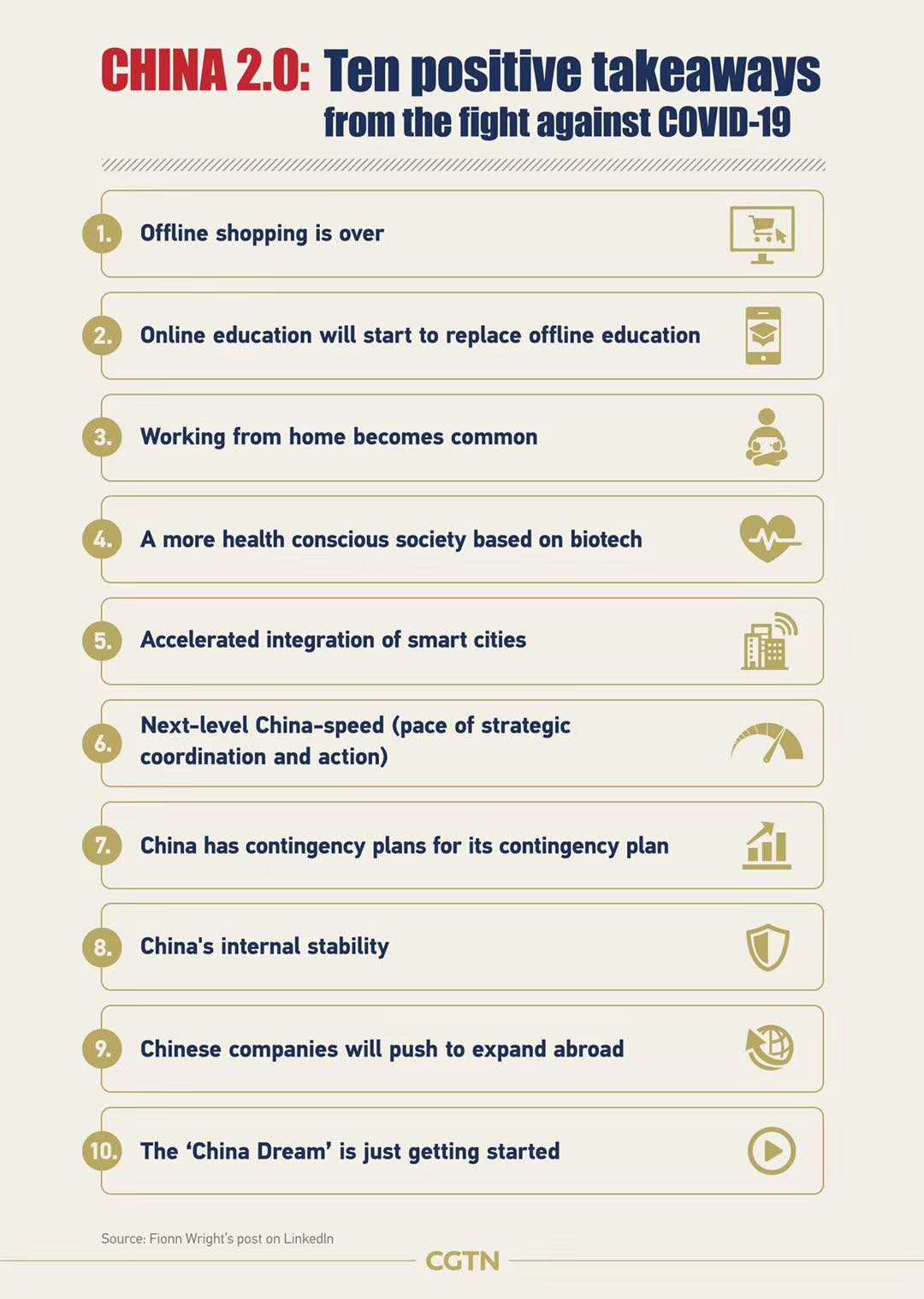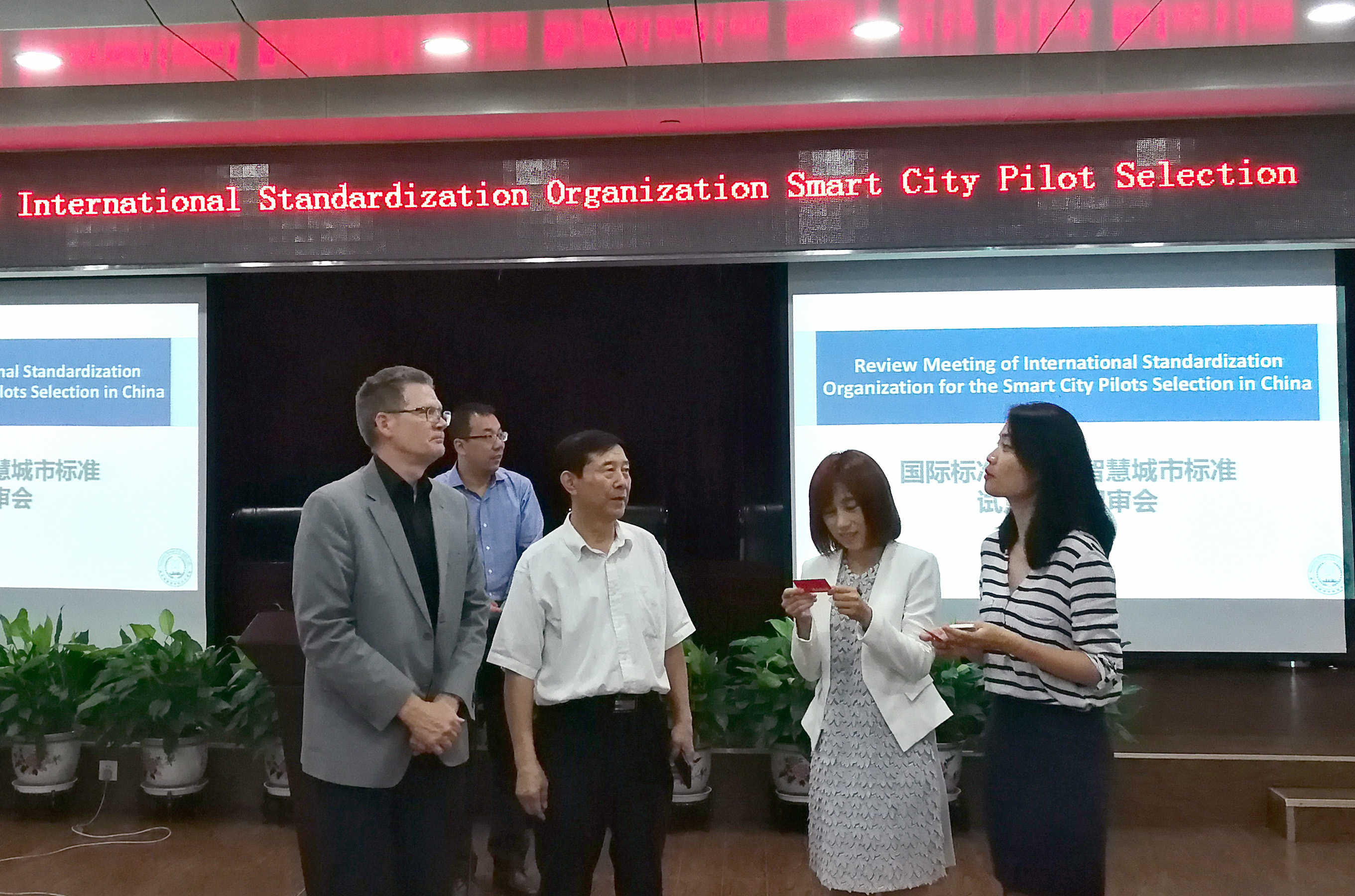News Information
2020-02-28
COVID – 19 Positive Lessons Learnt for China
This is a list of 10 positive ‘takeaways’ that was recently published by CGTN China’s official media to the world(Photo 1). What do you think of these points? The points are interesting from the point of view of China’s future urban development and pointers to new directions and strategies that could perhaps be embraced.
Points 1 – 3: Offline Verses Online Working and How Working From Home Equals Social Change
All point to a sea change in social interaction which is taking place anyway as a result of the technological revolution that is being experienced globally.
In our recent development projects we are pushing the boundaries of mixing functions to ensure more physical and social integration through positive and useable public space and function(Photo 2: Tahoe Fuzhou Bay, Fujian).
This is a trend which shows itself in projects that seek to increase visitor dwell time and break down the traditional barriers in function. A couple of recent examples of this in our projects include the use of hotel lobbies as multi-functional space and hubs of activity rather than being for single use only. Another is the redevelopment of bus stations(Photo 3: John Lewis Store, Grand Central, UK)in a city to be multi-use neighbourhood hubs that people would visit for social interaction and convenience including uses such as a medical centre and hot desk work space mixed with clusters of restaurants, cafes and bars.
Point 4: Changing Health Issues
Yes people are more health conscious but also peoples’ health needs are dramatically changing and the need for healthy environments(Photo 4: Hailongtun Tourist Village, Guizhou)is increasing. This is especially true when it comes to creating manmade environments that are sympathetic to the natural environment and positive for peoples’ mental health
as well as promoting healthy lifestyles that are holistic. Urbanisation must focus on the prevention of illness and not just the cure of illness. This makes fundamental economic sense and in China we have worked on a number of projects in city centres and outside of cities that do this. City living has its own pressures and again in China perhaps some of these pressures are greater than most other countries in the world.
Points 5 -7: Smart, Fast and Planned
China is attempting to provide urban development that is all 3 of these things. It has definitely achieved speed but ‘smart’ can be a misleading word because whilst it is based on coordinated data and technological systems this does not in itself guarantee a ‘smart’ or wise use of this information for the wider benefit of society(Photo 5: Smart Cities Activity).
China has the benefit of a political system that can provide long term planning but with regard to physical development the question is, on what basis is the plan fixed when the world is changing so rapidly and radically? In the context of city planning, it is important than any development or plan is wide enough and flexible enough to be able to adapt and change and cater for changes in society as basic as methods of transportation, employment to socialising and entertainment as well as the complications of globalisation and cultural change.
Points 8 – 10: Stability at Home as a Springboard to Venture Abroad and Be a Global Player
This is a critical stage for China and I believe there are still challenges ahead. The need to establish a strong domestic market must not be to replace the need to engage overseas but be a firm foundation to influence and take benefit from participating and enjoying the variety of opportunities that exist overseas.
There are ‘takeaways’ from the COVID-19 virus challenge that China is facing and I am pleased that Haskoll China can work in such an environment with a positive ‘can do’ mentality.




